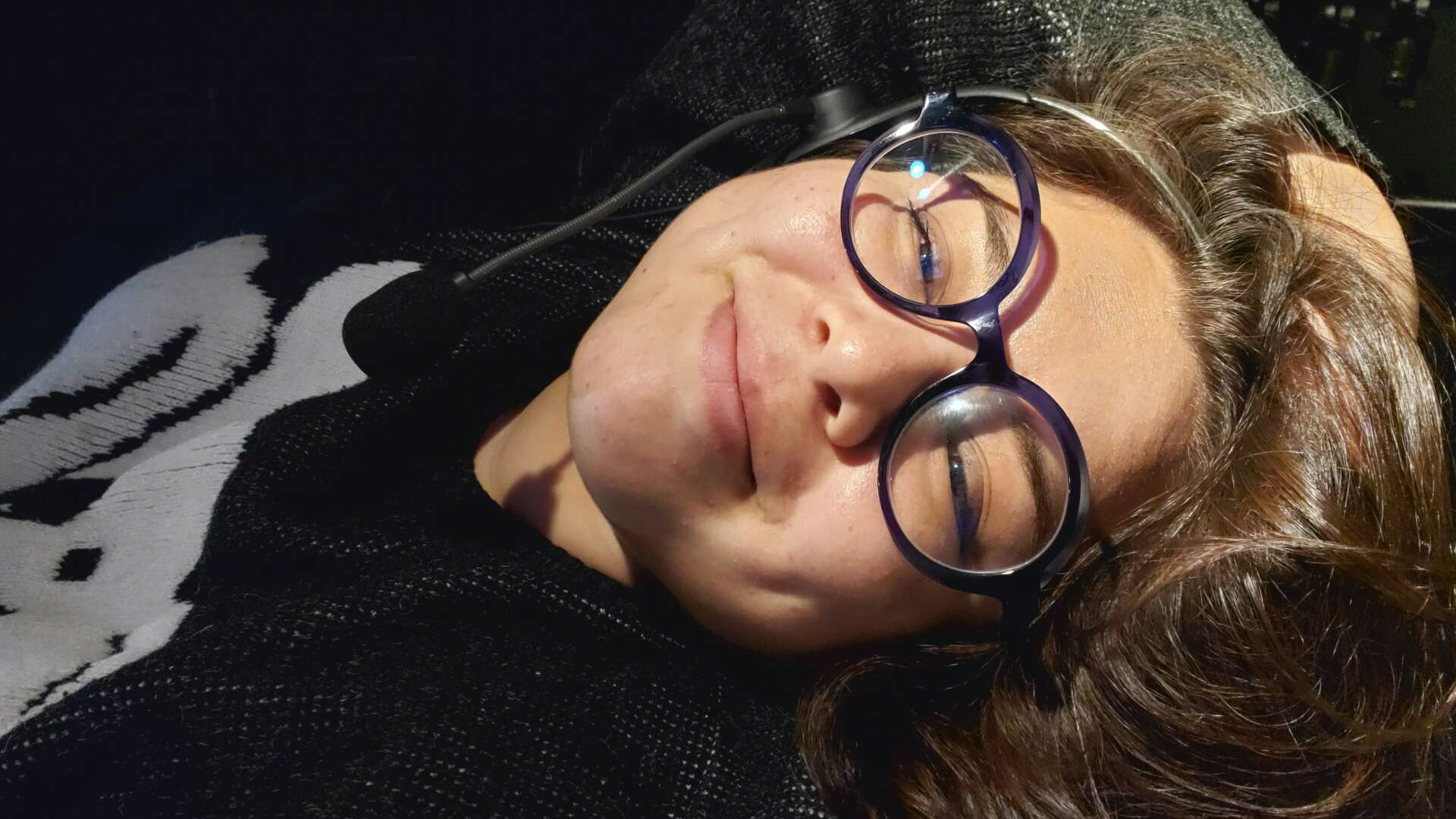We recently connected with Alexandra Vásquez Dheming and have shared our conversation below.
Alright, Alexandra thanks for taking the time to share your stories and insights with us today. What did your parents do right and how has that impacted you in your life and career?
It’s funny, nobody ever asks me about my parents. I think I’m in a field where a lot of us exist apparently in a vacuum of family and it’s very surprising when somebody brings up their family at work unless you’ve established a particularly personal bond with them.
Nobody in my family was specifically “artistic”- or at least nobody ever tried or aspired to make a living in the arts. My mom is a dentist, and my dad is an agronomical engineer. Two fields which one would think are very strict or “traditional”- but I think they both had artistic tendencies in their own right. Despite growing up in a very traditional country, my parents split the chores at home, so I grew up seeing a more “equal” division of labor than probably many people do growing up in Latin America. When cooking, I remember so specifically that my mom’s cooking was really remarkable, to the point where eating out was often unimpressive, but she didn’t really care what it looked like or if anything was chopped evenly. My dad, on the other hand, had maybe less skills as a chef in terms of flavor, but really excelled in plating and even meticulously chopping vegetables into perfectly even squares (my mom would NEVER). I particularly remember breakfasts he brought to bed for my brother and mom and I where he would arrange “starred” eggs (eggs over easy), fried tortillas cut into triangles, ham or sausage or chorizo, and tomatada and queso fresco on the plate to look like a shining sun. He is really someone who will take a lot of care into doing things, and will point out and plant beautiful flowers and trees purely for their beauty. He will drive for 3 hours if it means seeing a beautiful overlook from a mountain.
He also made up stories for me every single night when I was little – improvised on the spot with me as the main character- because I always had a hard time falling asleep. I think he instilled in me imagination and whimsy, as well as an appreciation for natural beauty. He also taught me how to treat people with respect- regardless of their socioeconomic class, their level of education, or the hierarchies in place, he has always addressed everyone in a very friendly and respectful manner that makes everyone feel comfortable and at-ease. I try to emulate that when working with or leading teams of my own.
My mom was the strict one in my family. I remember lying to her about not having started the times tables at school in third grade because I saw how she would quiz my older brother every available moment, and I wanted to avoid that stressful fate. It wasn’t until I failed the 8s that I had to come clean and she started drilling me during breakfast, the drive to school, the drive to dance class, during dinner, etc.
She has always been very into fashion and dressing well and looking well, to the point that as a college-student, she was the unofficial costume designer for her friends who participated in pageantry. She would sketch dresses in her notebooks, and the friends would hand them off to a seamstress to bring the outfits to life. We spent hours upon hours pouring over magazines together. She would ask me which of the outfits on the pages I would wear, and to explain why. I think that really made me develop a sense of not only what I liked and disliked (taste), but it gave me the agency to have a voice to explain why I did or did not like something. That carried on not just to dresses or shoes or shades of lipstick, but to every aspect of my life. I have always felt empowered to share my opinions and to feel like they are important and to have a reason why for my choices.
My mom is also fairly critical and has very high standards- so I think that also made my brother and I develop a sense of “doing things well” – or “excellence”. It annoyed me as a child when other kids would get a new playstation or some fancy toy because they were doing well at school, and I would get a “well, you’re smart, so it’s expected of you. If you were dumb, I could try to bribe you to do well in school, too.” We were never allowed to really get complacent. We knew that they were working very hard for us to attend the school we attended. We knew that our education was a privilege and that in return for their efforts, we had to do our part of really taking advantage of the opportunities we were being offered. It was always very clear that the expectation was for my brother and I to do well in whatever career we chose because we had been afforded all the education and opportunities and extra-curricular education we had ever asked for. We both knew that our futures would be bright if we made them bright and that the key to broadening our horizons was education. My mom especially encouraged both of us to dream as much as we wanted and then even further. The sky was never the limit on what she taught us we could accomplish, and her favorite sayings always were “la paciencia es la madre de la ciencia” (patience is the mother of science) and “todo tiene solución menos la muerte” (everything has a solution, except death). My mom went to dental school during my country’s civil war, so I know that I will never measure up to how badass her performing surgery on somebody’s cheek (pro bono!) with a Gillete razor blade because the scalpels and other medical supplies had been sold off by the health center to bring in some more revenue.
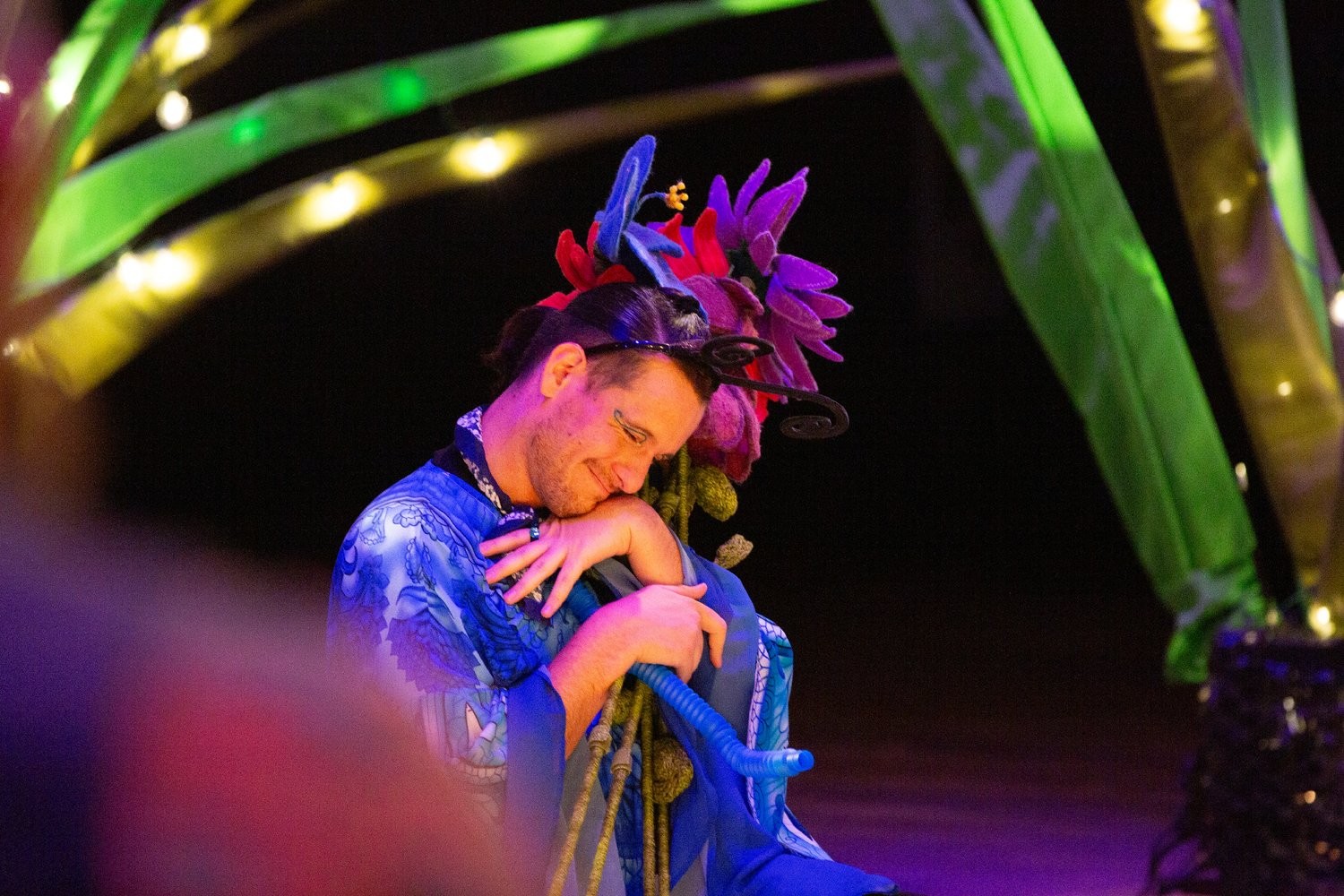
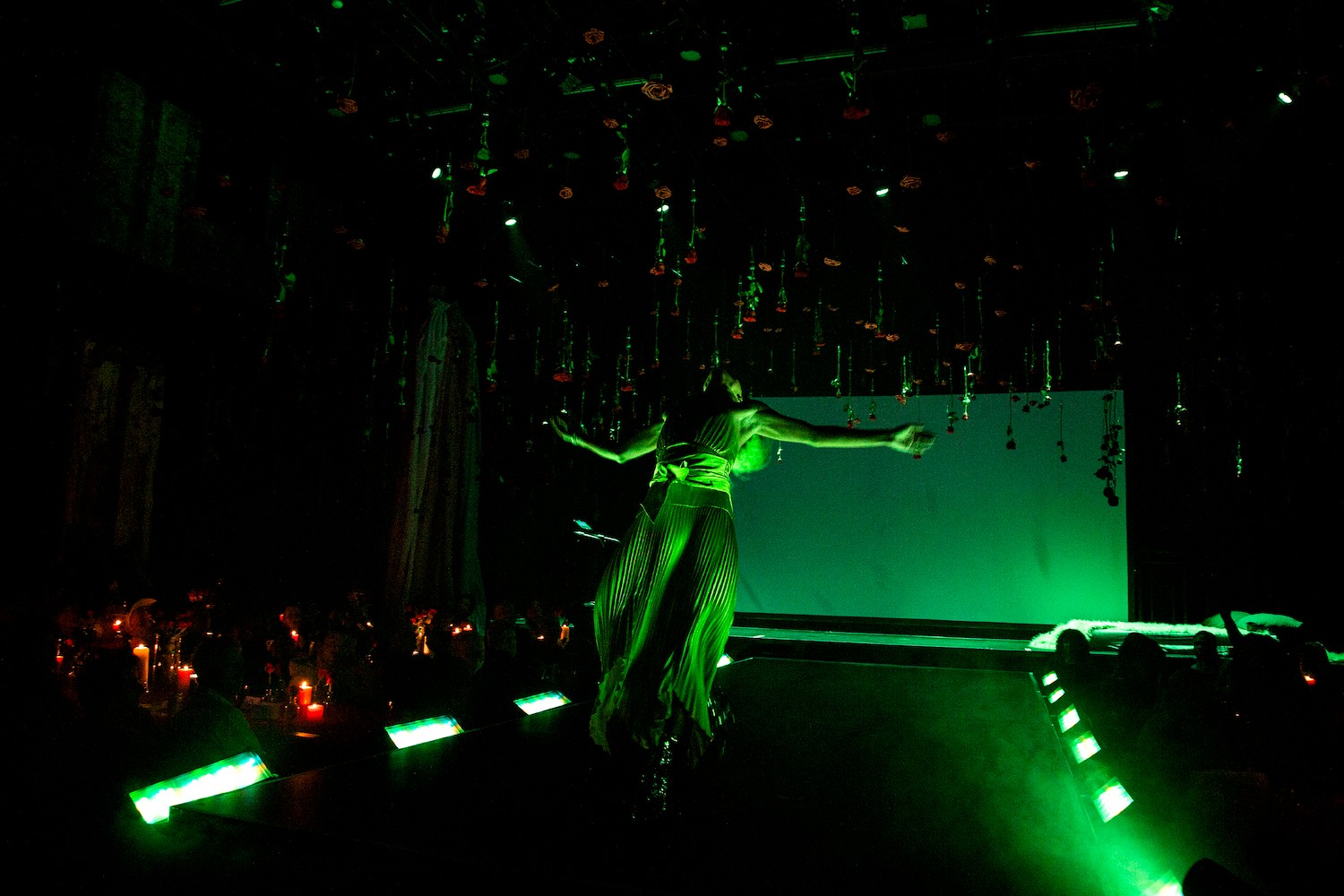
Great, appreciate you sharing that with us. Before we ask you to share more of your insights, can you take a moment to introduce yourself and how you got to where you are today to our readers.
I am a lighting designer by trade. I work in the performing arts, occasionally in other types of live events, and very often in the dance world.
I got into live entertainment through a very complicated road.
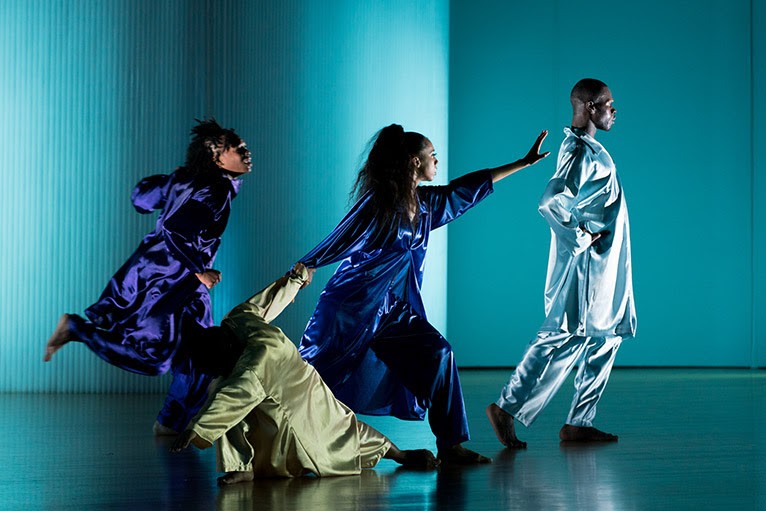
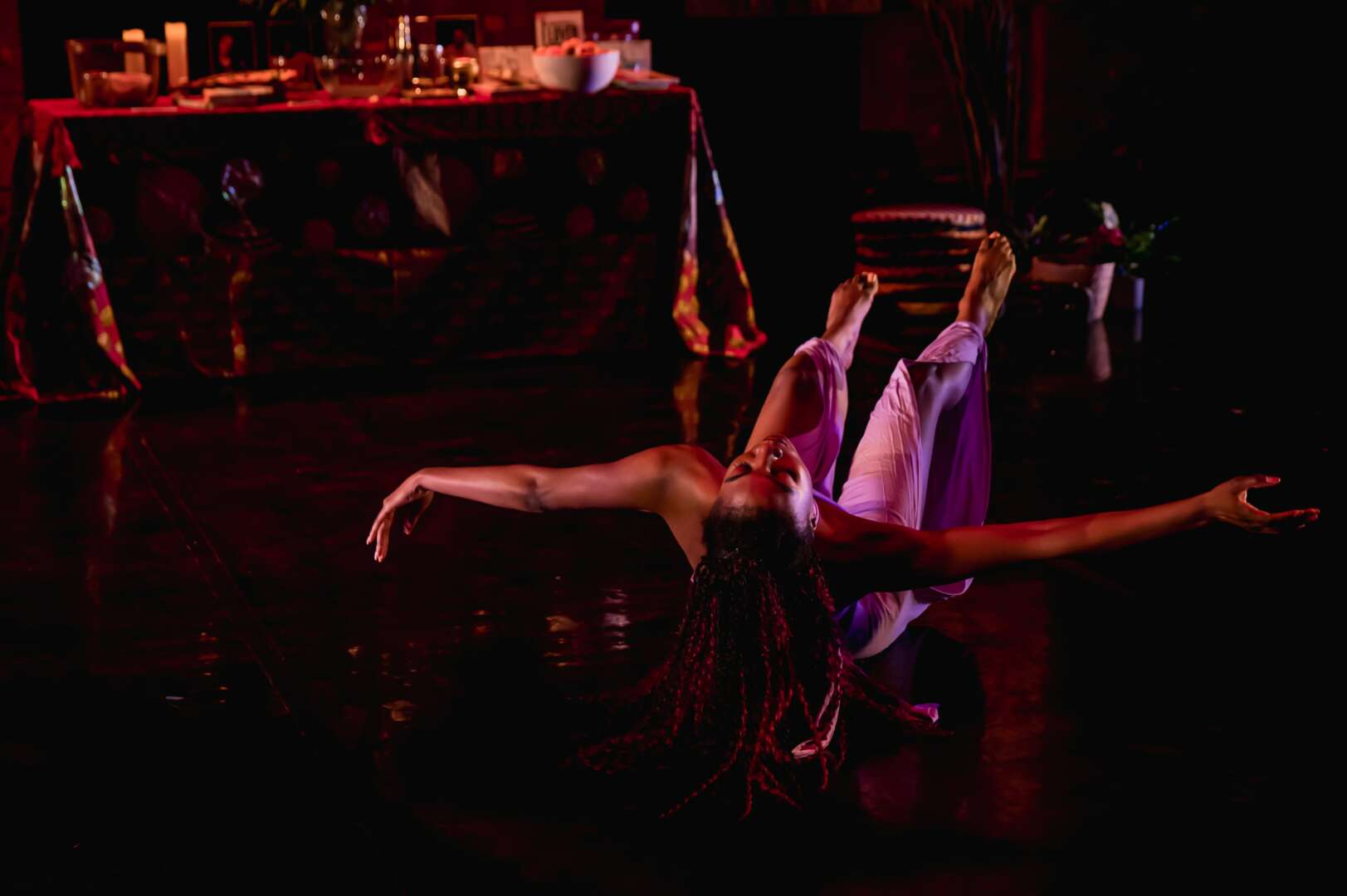

What’s a lesson you had to unlearn and what’s the backstory?
I have so many of them that I am constantly learning and unlearning. A big one is the age-old maxim “the show must go on.” I was very attached to this all throughout my education and the first three or four years of my career. It felt noble and almost valiant to keep going despite lack of sleep, illness, or any big hardship that was going on. I think I had a romanticized sense of “you must suffer for your art” and “nothing is more important than the art” that I was carrying since teenagehood, and which cemented during college and the other various training/internship programs I attended. I was always praised for going the extra 10 miles, even though I was generally running on fumes. I think I was too young to know that I needed to take care of myself, too. I was very aware that being an immigrant, I would have to work three times as hard within an extremely tight timeframe to be able to have a career in this country. I never really had a plan B.
I have romanticized memories of coming back home to my old, cramped, smelly Bushwick apartment and heading to the roof with my neighbors, who also worked in theater, to look at the skyline and it all feeling like the dream. The reality is that prior to that, I had woken up at 4 or 5am, packed my lunch, walked 15 minutes to the subway before sunrise, gotten into the empty subway car that had maybe 3 construction workers and 2 people commuting home from the club, met a 14 foot box truck somewhere in Manhattan to drive a few hours to a venue outside the city, led a scenic load-in, focused a light plot that had not been completely hung yet, cued an entire show, gone through spacing with dancers and a dress run, rushed any lighting notes in the few minutes before house opened, ran a show, and on the worst occasions done or led a strike right after, then headed back to the city. Sixteen or eighteen hour days were pretty common in my first two years in NYC. Illness was not reason enough to not go to work because if I didn’t show up, how would the show get put up? And how would I pay my rent? I wish that I could say that things have changed a lot in the past 8 years, but the reality is that this past April, I caught Covid and the second I tested negative, even though I still felt awful I was asked to take the next train down to DC because the show would not be able to happen without me. It is a problem that there are not enough funds to pay for swings or for real contingency plans.
Last August I woke up at 5am in Tallin, Estonia, got into a car by 6am, rode while the production manager blasted Russian techno for two hours to a city 30 minutes from the border with Russia, loaded in the show, focused the plot, cued the show, started my one meal-break of the day, was informed that I would have to re-cue the entire show because the spotlight operators did not understand English so we would have to do the show without spotlights, re-cued the show, did the show, struck the show, got on a tour bus, rode another two hours back to Tallin, and finally realized that it wasn’t worth it to me. The company can continue like that, as they have done for fifty years, but I don’t have to be a part of it. Those types of shows can go on without me.
Last summer, I had a hypertensive crisis after a particularly stressful “busy season”. Before getting diagnosed, I thought it was just a bad bout of anxiety for about a month. After many, many exams, and medication for a few months, and changes in eating and sleeping habits, I was able to get my bloodwork back in order, and go off medication. Regardless, my doctors said that my body was still running on overdrive because of chronic stress. A close Stage Manager friend recently joked to their doctor that their ‘job is stress’ when the doctor questioned any possible reasons for their high blood pressure.
I keep unlearning that the show doesn’t *have* to go on, but it’s hard to prioritize oneself when it feels like you will let an entire team down by not showing up for them, but instead showing up for yourself. We have to aim to make sure that we are never putting anyone (including ourselves) in dangerous or irresponsible situations that can be avoided with proper planning, staffing, and foresight. It is not healthy or sustainable for entire productions to be able to fall apart if one or two people get sick or have emergencies. A lesson I will never unlearn was one I learnt my first day of Production Design 101: “we are not curing cancer”. We need to act accordingly.
During/after the pandemic I realized that my priorities (along with the industries- at the time) were shifting. I realized that I regretted missing my close friend’s weddings for work, or not going home for Christmas to spend time with my grandmother because I thought I had to work. In school we were taught that going into this field would mean missing important occasions with friends and family, and that the only way to be successful and also have a personal life was to find a partner within the field because they are the only ones who would understand our long ridiculous hours. I assume this is still being taught, but I hope that new generations of students challenge these “lessons” among so many others.
I think that “the show must go on” taken in the context of “you can keep going if something goes wrong- it’s not the end of the world” can be a very positive spin on it; a young girl who continues her choreography unfazed in her ballet recital when the music cuts out for a minute becomes a woman who is unfazed and able to keep going when life throws difficulties her way. Unfortunately, I don’t think that’s how the majority of the theater or the entertainment industry as a whole has understood it.
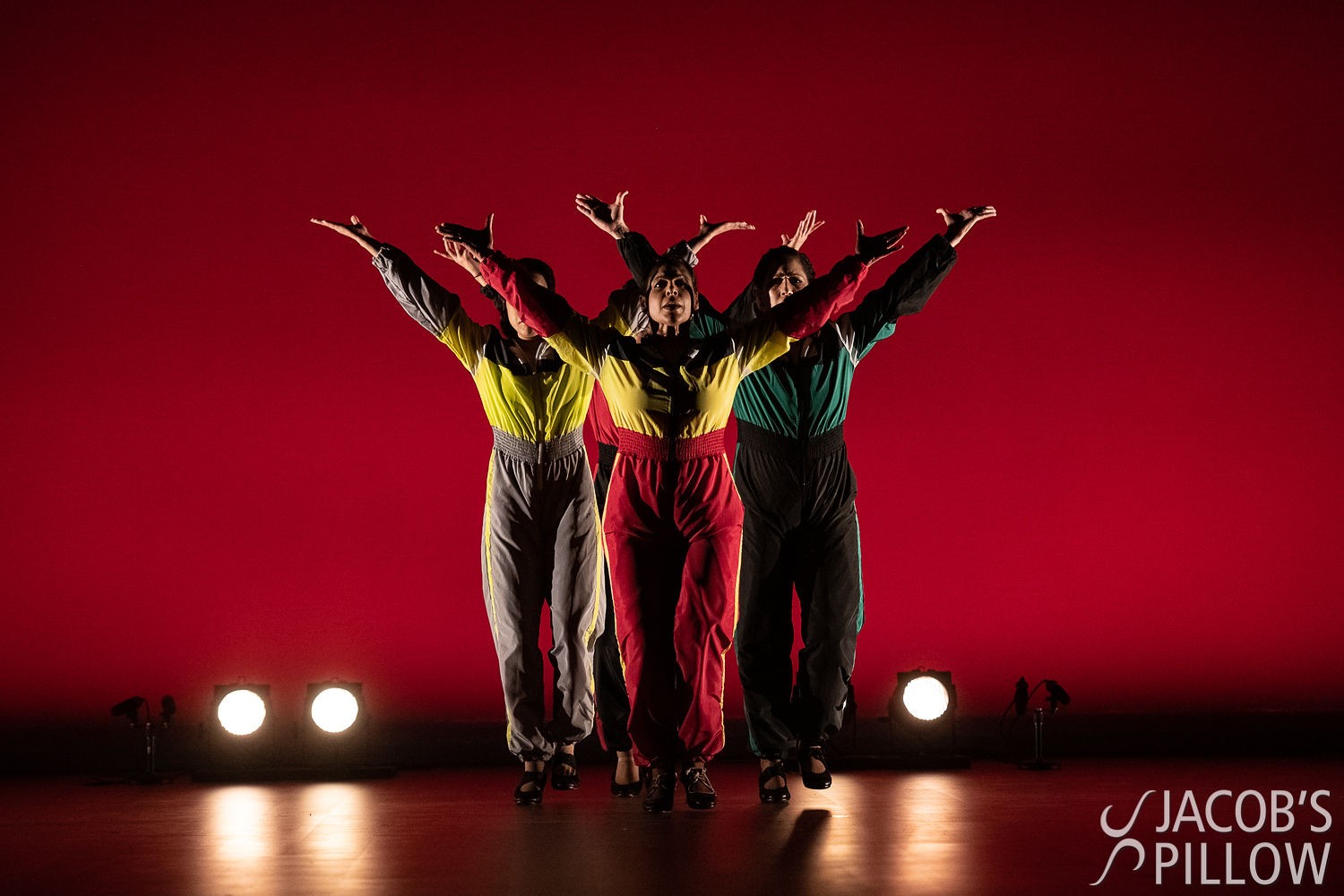
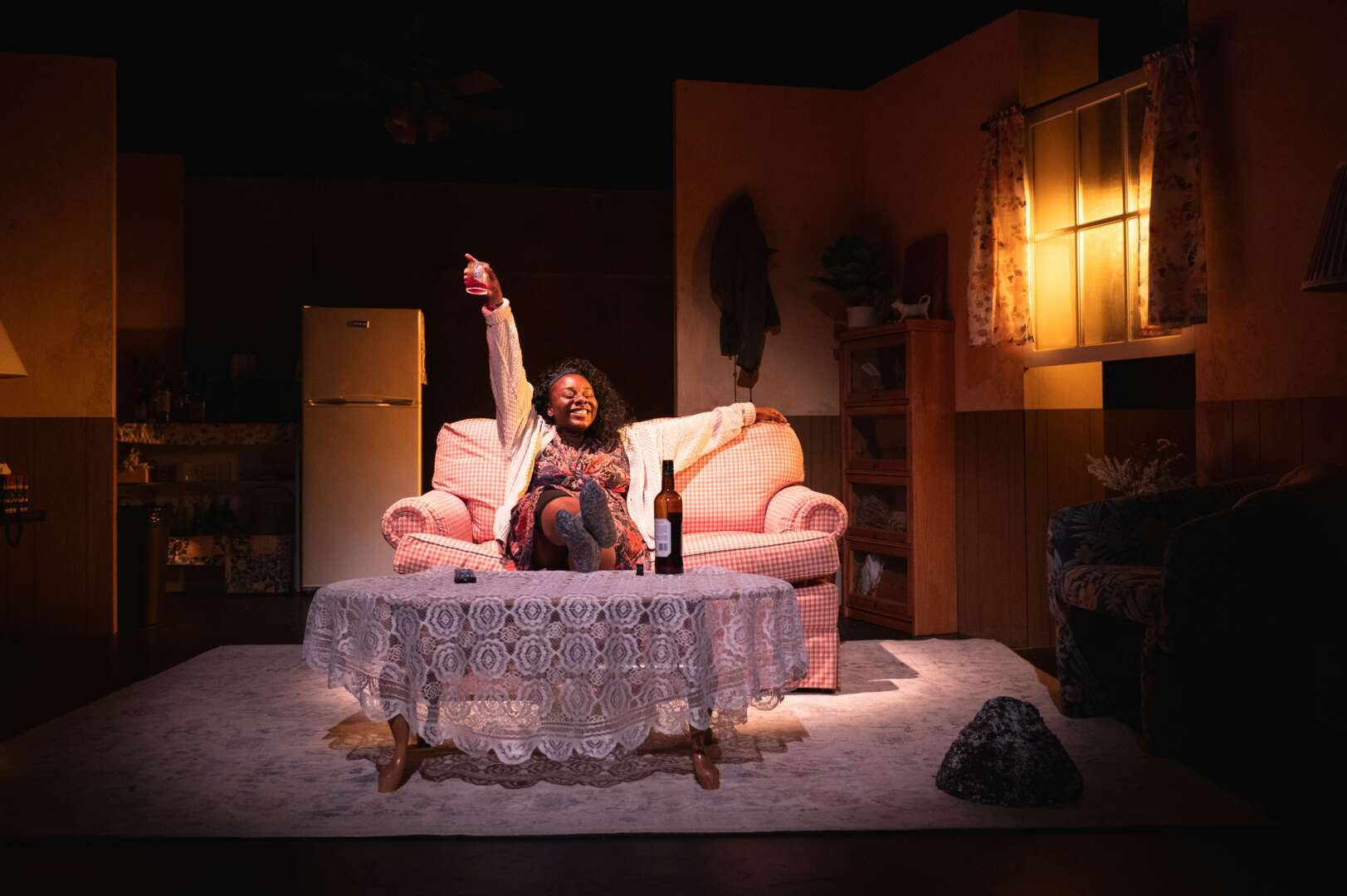
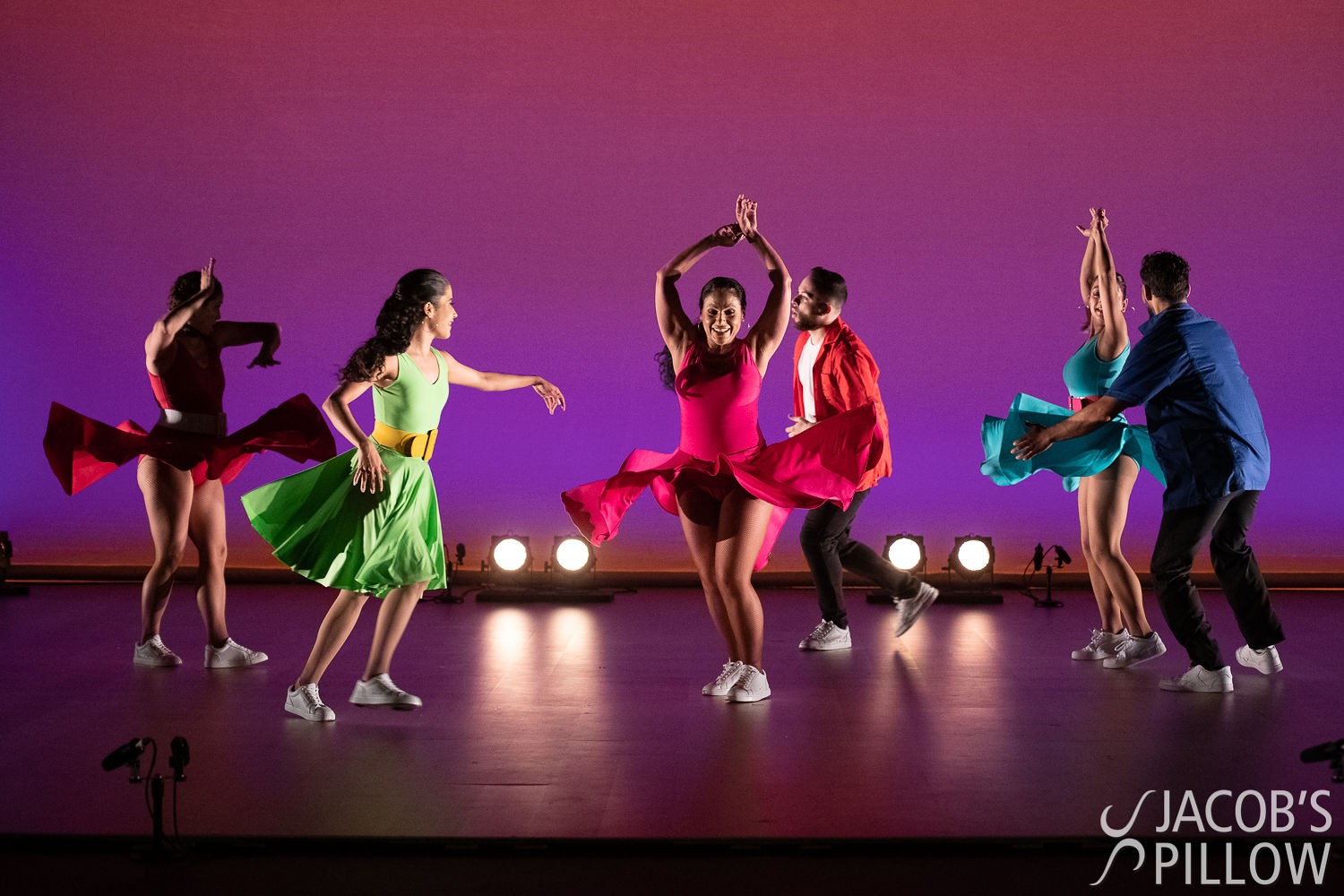
What do you think is the goal or mission that drives your creative journey?
This is a hard question to answer in the midst of everything that’s currently going on in the world. I think at the end of the day the hope is for empathy and understanding and connection. There are definitely more desperate days when I question what I’m doing with my life- especially when I read and watch the news, and I feel like my life’s work will never fix any of these social or environmental problems. The first time I realized that I might want to “become” an artist was when I watched a show called “Un Día en La Vida” put on by the company Humanum Tempore in San Salvador. It was an adaptation of the novel by the same title by Manlio Argueta which details a day in the life of a woman during El Salvador’s civil war. I was born the year of the peace accords, and had grown up fascinated by stories and lore from the war. I had no idea that dance, which I had already spent about 12 years practicing at that point, but saw purely as a hobby, could be a vehicle for important narratives. Soon after that, I saw a play at the National Theater called “Los Olvidados” (the Forgotten Ones), which told a story of one night for homeless characters in the downtown area of a city. I didn’t know, before that, the power of theater.
Through a very winding path, in which I first thought that I would become an environmental lawyer, I ended up studying Production Design at the Savannah College of Art and Design, and I ended up focusing on Lighting Design. I found lighting to be an intangible and seductive medium that I was able to shape stories through. It isn’t an obvious medium, it’s more secretive and manipulative, but within those manipulations it evokes or allows feeling. I think that it reaches beneath our consciousness and pulls at our heartstrings because as humans we have such intrinsic reactions to light and dark, to the warmth of fire or the harshness of cold. While lighting can seem very mechanical and mathematical (we have to perform photometrics and there are so many measurements and angles and electric calculations involved, and technology, and programming, and sometimes networking, etc), at the end of the day light is primordial, and its effects on us are primitive and embodied. I once met a person who goes to the theater to allow herself to cry. I find that people can go to the theater and the darkness is the only place where they feel no shame. Some see themselves represented, or understood, or in community for the first time in their lives. For some people it is their version of Church. There are things people can’t talk about- but they don’t have to- and they can feel connection to the piece or to the people who are experiencing this around them at the same and only time. The unique aspect of live theater or dance or performance in general is that we are sharing something that will never happen again in the exact same way. It’s building community. It’s building empathy when one can watch something as an audience member and leave understanding someone else. It makes us remember that other people exist too- especially nowadays when everyone wants to have “main character energy”.
There are organizations making incredible work for specific demographics who have either not had enough representation before (Immigrant, Black, Latin, AAPI, Queer, Disabled, etc stories) or for demographics who might not have access to live performance for other reasons. This Spring, for example, I had a dream collaboration with Trusty Sidekick who creates immersive “small-batch” performances for children. The production I worked on, “Frolic”, was created for a neuro-diverse audience ages 5 and up, and the entire goal of the show was to just allow for play and exploration without having to learn a lesson or having a purpose other than enjoyment and curiosity.
Sometimes being an artist feels silly and irrelevant, but other times it feels like the only thing that gives life meaning. I think the goal is for everyone to have access to this, for live performance to not be exclusionary, and for anyone and everyone to be able to have experiences that make them see the world a bit differently- a bit more hopeful and a lot more connected than how they previously saw it. It’s magical when someone who hasn’t ever been around “Art” finally feels welcome and understood and is allowed to feel and release things they have been carrying around with nowhere to lay down.
Contact Info:
- Website: www.alexvasquezdheming.com
- Instagram: @alxvsquezdhming
Image Credits
Dilia Jelen Valerie Terranova Photography Hyphen Photography Santiago Felipe Effy Grey Titus Ogilvie-Laing Christopher Duggan


